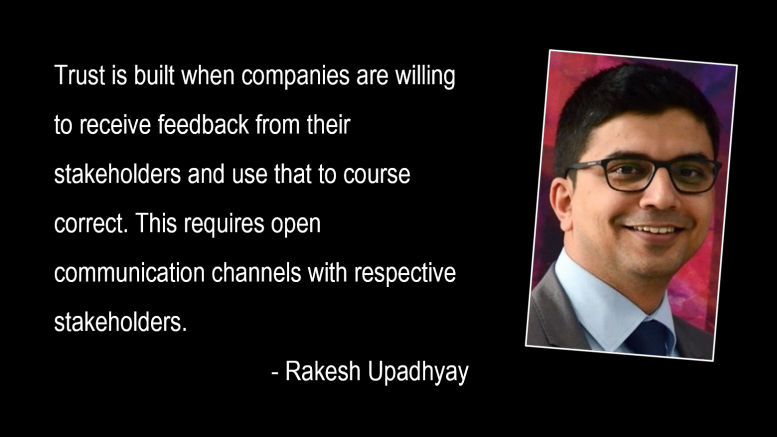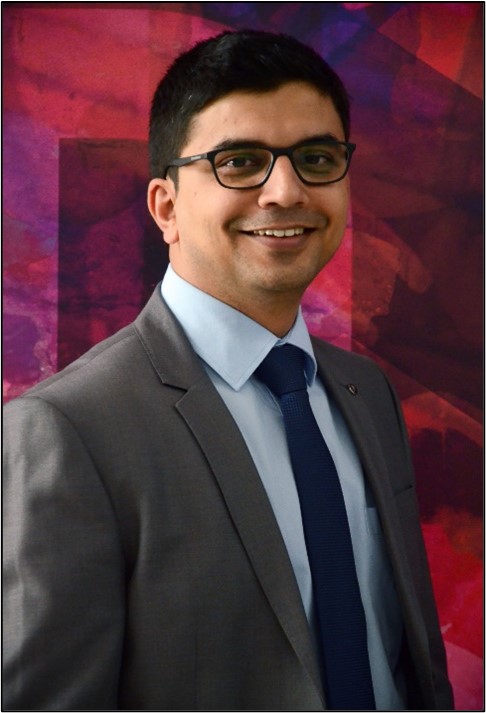The pharma industry is tasked with the important responsibility of discovering and developing medicines to achieve better public health outcomes, which includes several tough-to-treat conditions or diseases. In many countries, including India, due to the highly regulated nature of the pharma industry, there’s room for better healthcare communication to build trust with various stakeholders.
Since healthcare is perceived as a complex subject by the masses, healthcare providers act as a bridge of communication between patients and pharma companies, to convey the health conditions and appropriate treatment options carefully and effectively. Today, with the boom of digital media where there’s a deluge of information available on various health topics, patients are very likely to consume misinformation and believe it. This has been a first-hand experience for many during the pandemic. Therefore, there is also a need for healthcare providers who are trusted sources, to convey accurate scientific information to patients, and to empower them about their health choices. This is where healthcare communication can play a significant role.
So, what can healthcare businesses do to build trust for their company, brands, and therapeutic solutions, amongst their stakeholders?
Build a communication outreach strategy that rests on three strong pillars, discussed below.
Empower patients with scientifically backed information
Effective management of any disease depends on multiple factors in a patient’s journey, these include the patient being aware of the symptoms of an underlying condition and seeking treatment from the right medical specialist to the accurate diagnosis by the doctor, the most appropriate treatment regime and finally the patient’s adherence to the doctor’s instructions. Therefore, awareness and access to accurate information both at the patient and doctor level is critical to managing a disease, thereby reducing its overall burden.
Patient empowerment is a concept we must embrace. Effective communication programs will enable positive relationships to be harnessed within the patient and other stakeholder communities. Clarity of purpose, knowledge, and information all feed into this. Scientifically accurate information converted into easily understood lay language provided by pharma communications within the local compliance boundaries can unplug some potential information gaps and can help patients understand benefits, identify symptoms, and seek timely diagnosis and treatment. This requires a sustained communication cycle built to deliver awareness material and information to patients.
Be open to feedback
Trust is built when companies are willing to receive feedback from their stakeholders and use that to course correct. This requires open communication channels with respective stakeholders. We listen to our healthcare providers consistently to ensure our medicines are reaching the right patients. But we do not always have a consistent dialogue with patients or receive feedback from them.
As communicators, it is our responsibility to ensure that we hear the voices of patients, their caregivers and patient groups regularly to build a relationship grounded in trust. There is a need to safeguard patient interests and feedback so they can communicate honestly and openly with their healthcare providers and subsequently receive effective care. Empathetic communication encourages patients and their caregivers to be open about the real challenges they face, which also creates an opportunity for the business to become a solution provider for them. Not all companies create channels to facilitate a two-way communication process. Ensuring private patient information is handled ethically and responsibly can promote more effective communication between companies, physicians, and patients. Understandably, any form of two-way communication requires a lot more time, effort, preparedness, and resources but it can build unwavering trust in the long term.
Exhibit transparency in business
It begins with sharing our business purpose and showing that our actions towards our stakeholders are aligned with our purpose. This is one kind of transparency in communication and without it, all our business endeavours, innovations and scientific breakthroughs remain claims that may or may not sound credible. Additionally, businesses should be able to tell their stakeholders what innovation means for them with clarity and transparency. Not transparently sharing clinical evidence of drug trials for instance can break the trust between companies and doctors and doctors and patients. By transparently communicating scientific information with healthcare providers, we enable them to make informed decisions for their patients.
In India, the government is making significant efforts to enable more transparency across many of these interactions within the industry and help strengthen trust among various stakeholders. Therefore, transparency in business is a best practice the industry should exhibit more than ever before.
The views and opinions published here belong to the author and do not necessarily reflect the views and opinions of the publisher.



Be the first to comment on "The task of health communication: Build trust with all stakeholders"